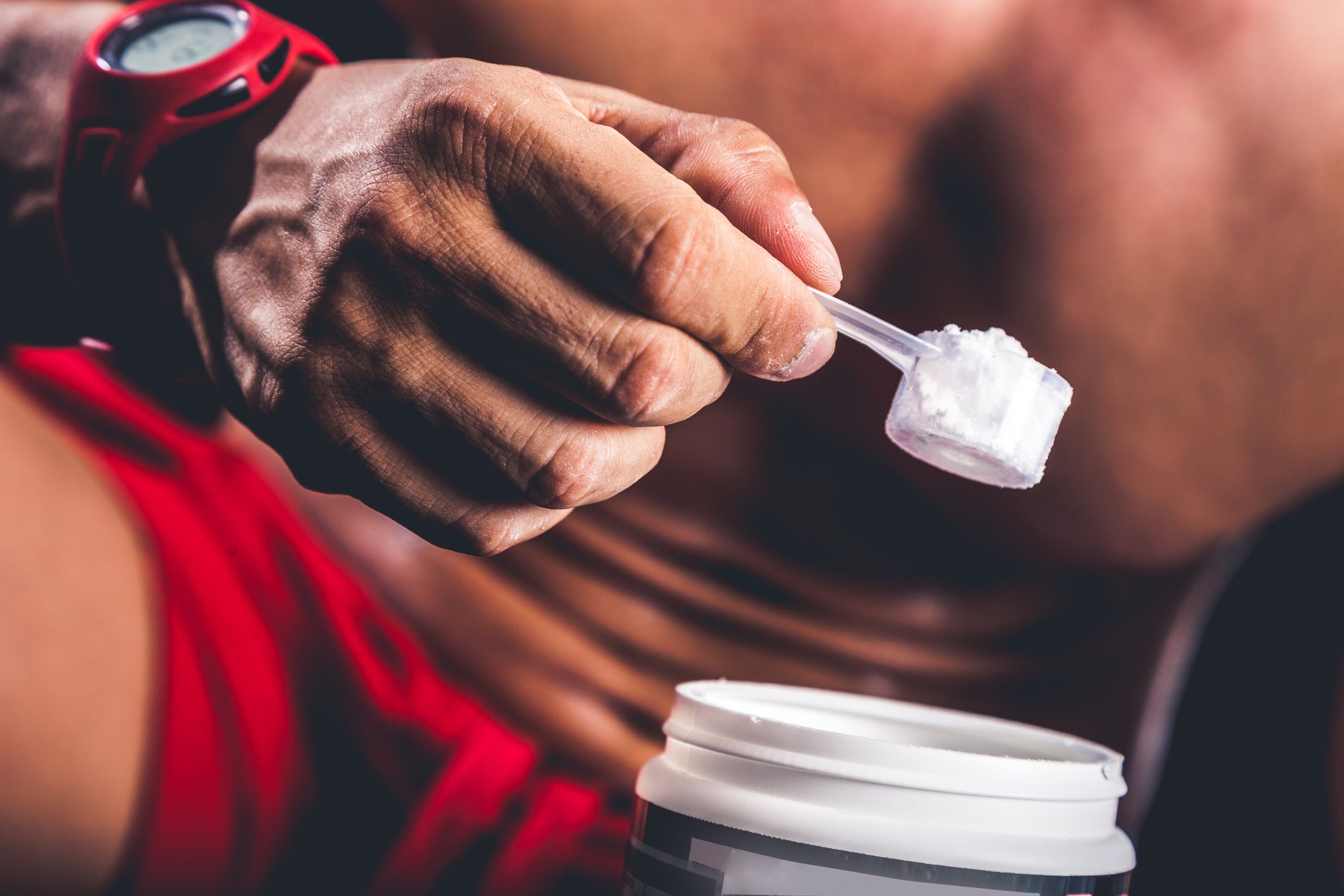I’ve been using creatine for four years – here’s why it’s my favourite supplement
Creatine has helped improve my strength and recovery, which is why it’s a non-negotiable for me

If I were to recommend one supplement that would benefit the most people, it would be creatine. Not only has it helped me build strength and muscle over the years, but it’s also well-researched and fairly affordable.
I started feeling the benefits after just a few weeks of using it – I felt stronger, more powerful, and my training quality in the gym amped up thanks to improved recovery between sets. In the four years since I’ve hit all-time PBs across the big three lifts and seen my scores improve across most CrossFit (my go-to training style) benchmark workouts.
Of course, creatine is only a small part of this puzzle: consistent and progressive training, an appropriate diet and ample recovery are the cornerstones of improved performance. But I believe this supplement has acted as a catalyst as I gradually climb my way towards various strength-based fitness goals.
What is creatine?
Creatine is one of the most popular supplements on the market. And with the potential to improve athletic performance, it’s easy to see why. But what actually is it?
A natural substance, creatine is already produced by the body and found in muscle cells. It can also be consumed via foods such as red meat and seafood, and supplemented as creatine monohydrate in tablet or powder form.
Creatine supplementation can increase your phosphocreatine stores. Phosphocreatine is stored in cells and used to produce adenosine triphosphate (or ATP, often referred to as the body’s “energy currency”), which provides readily-available energy for high-intensity activities such as sprinting and lifting heavy.
What are the benefits of creatine?
Creatine supplementation won’t automatically make you fitter, and it won’t work for everyone (it’s surplus to requirement for people who already have high levels of creatine stored in their muscles thanks to factors like a high-protein diet, for example). But when used alongside a regular exercise routine, it can have some impressive impacts for many people, myself included.
According to a 2021 review, supplementation of 3-5g per day over the course of four weeks “increased creatine stores, augmented muscle performance, mitigated recovery factors, and resulted in muscle accretion”. In simple terms: it boosted strength, recovery and muscle growth.
The same review concluded that creatine supplementation could also contribute to improvements in fat-free mass, maximal force production, and agility and jumping performance. This last point makes the supplement a good fit for those who play any sort of competitive sport where sprinting and jumping factor in, such as football and rugby.
And finally, the review states that the increase in intramuscular creatine following creatine supplementation was especially significant in vegans over omnivores, as those following a vegan diet had lower levels of creatine stores to begin with.
How has creatine helped me in my training?
The main thing I noticed when I started using creatine supplements was the increase in my strength. Despite following similar, progressive resistance training plans both before and after taking it, I found my numbers climbed more consistently in the post-creatine period. In the first year, I added 12kg to my back squat, 5kg to my bench press and 20kg to my deadlift. Progress has slowed since then, but I’ve still been able to add extra plates to my barbell on a semi-regular basis – something any long-term strength training fan will tell you is still a solid return on investment.
In these last four years I’ve also been able to build a decent amount of muscle too. Creatine can’t take sole credit for this, far from it, but a quick consultation with an expert revealed it probably still played a significant part.
Dr Justin Roberts, associate professor of health and exercise nutrition at Anglia Ruskin University and co-author of a research article on whether creatine can help you get in shape, says the supplement can help you train harder for longer. This is, perhaps, creatine’s most notable contribution to muscle growth.
And finally, I’ve been able to up my training volume and still recover from intense sessions, seeing my performance in CrossFit-style workouts improve as a result.
Read more: Women should be taking creatine, especially in midlife – here’s why
Join our commenting forum
Join thought-provoking conversations, follow other Independent readers and see their replies
Comments
Bookmark popover
Removed from bookmarks